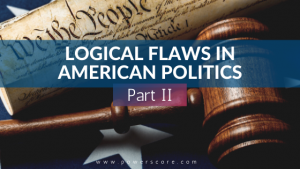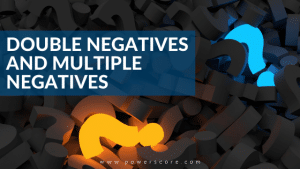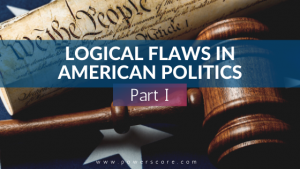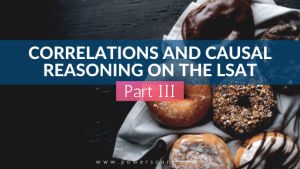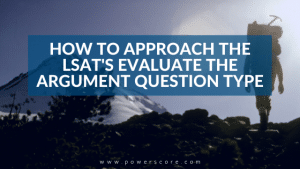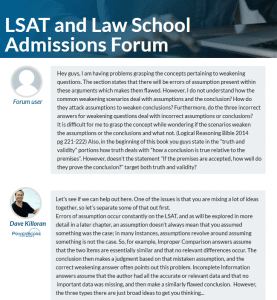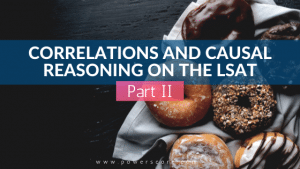I tell people all the time that one of the greatest things about the LSAT is that it’s remarkably consistent! That is, for the test to be considered a legitimate measuring device where people taking different LSATs can still be compared to one another in a meaningful way, the measuring device itself (the LSAT) absolutely CANNOT change! That, in a way, is the very definition of a "standardized" test. I mean, what good is a ruler if yours has 13 … [Read more...]
Obamacare Numbers and How to View Numbers and Percentages on the LSAT
The rollout of the Affordable Care Act ("ObamaCare") has gotten quite a bit of attention. Much of the discussion has been about numbers. Since numbers frequently play a significant role on the LSAT, I figured this would be a great opportunity to talk about how we should view numbers and percentages on the test.To be very clear, this is not a political piece, and we at PowerScore take no political position. Solely from the perspective of what … [Read more...]
Logical Reasoning Flaws in American Politics Part II
In part one of this series, we discuss the Logical Reasoning flaws that candidates during the political season help demonstrate. On the LSAT, LR flaws are a common question you will face. In this post, we consider several more examples. Causal Reasoning"I'm the most successful person ever to run for the presidency, by far." - Donald TrumpCausal reasoning flaw: assuming a causal relationship where only a correlation has been … [Read more...]
Double Negatives and Multiple Negatives
In their creation of the LSAT, the test makers have found many ways to make Logical Reasoning questions challenging. Often the stimulus is so long or complex that it can be tough to get through. Sometimes even the question stems can be difficult to interpret. And, as you may have noticed, the writers of the test are quite adept at hiding the right answers among very appealing incorrect answer choices. Double Negatives One element that is often … [Read more...]
Is the LSAT Getting Strange…r?
Whether the test is getting more "strange," "unusual," or "weird" is a question we get on a weekly basis. It's an understandable worry! Your prep comes with the assumption that the skills the LSAT tests don't vary from one administration to another.Rest assured that they do not. Every LSAT tests your ability to:Reason with conditional statements Infer what must be true or false from a given set of rules Recognize logical … [Read more...]
Logical Reasoning Flaws in American Politics Part I
If you're preparing for the LSAT, you're probably familiar with the sorts of flaws that commonly appear on the Logical Reasoning sections of the test. If not, there is an entire chapter devoted to Flaw in the Reasoning questions in the PowerScore LSAT Logical Reasoning Bible. Your chances of running into a flaw question on the test is very high. Political debating season provides countless examples, as well. Source Argument“Look at that … [Read more...]
Correlations and Causal Reasoning on the LSAT Part III
In Part 2, we discuss two questions that specifically deal with Weaken and Assumption in correlation and causal reasoning questions on the LSAT. In the final part in this series, let's go over those questions. Be sure to read Part 1 and 2 in the series before diving in. Question #1 Let’s start by revisiting the first question. Advertisement: Pump3D is a nutritional supplement that can greatly reduce athletes’ fatigue after anaerobic exercise. … [Read more...]
How to Approach the LSAT’s Evaluate the Argument Question Type
As we get closer to the LSAT administration date, people who have already done a great deal of study start to look at some of the less frequently tested subjects. When students finally discover Logical Reasoning Evaluate the Argument questions, they panic a little. At first, it seems quite different. It’s not a Weaken or a Strengthen question, but what exactly is it?Never fear. Although – as with all things – it's easy to make this question … [Read more...]
Conditionality vs. Causality: Similarities and Differences
Did you know that conditional reasoning and causal reasoning can be found in over 30% of Logical Reasoning stimuli on the average LSAT? That's right; they're two of the most frequently tested, and most frequently misinterpreted, reasoning techniques on the test!In today's LSAT Forum Post of the Day, PowerScore Senior Developer Jon Denning advises a student on exactly how to differentiate between these two concepts. In addition, he outlines … [Read more...]
Weakening Concepts and Truth vs. Validity
How do you attack assumptions to weaken the argument? Do the three incorrect answers for weakening questions deal with incorrect assumptions or conclusions? Read this discussion between a PowerScore student, a PowerScore senior instructor, and LSAT Bible Trilogy author Dave Killoran to learn more!Here's a quick preview. Make sure to check out the full thread to read the entire explanation Nikki and Dave provided to this student:The … [Read more...]
Assumption Question: Supporter and Defender
Have you ever wondered why Defender Assumptions are often connected to stimuli that have no obvious errors? Well, one of our students was wondering just that, and decided to ask us about it in our LSAT Forum.PowerScore instructor Clay Cooper first weighed in with an excellent explanation of how Defenders work, and then LSAT Logical Reasoning Bible author Dave Killoran followed up with a discussion of whether you should know if you will be … [Read more...]
Grouping Games, Conditional Linkage, and the Double-Not Arrow
A commonly-tested occurrence in Grouping Games (and even occasionally in Logical Reasoning) is a set of conditional rules that can be linked to one another through shared variables, forming chains and producing a series of inferences. The ability to create and manipulate these linkages is critical, as is the ability to avoid mistakes!In this LSAT Forum Post of the Day, PowerScore VP of Development Jon Denning walks a student through the … [Read more...]
Correlations and Causal Reasoning on the LSAT Part II
This is the second article in a series that discusses Correlations and Causal Reasoning on the LSAT. Here is a typical stimulus containing a causal conclusion supported by a correlation. Advertisement: Pump3D is a nutritional supplement that can greatly reduce athletes’ fatigue after anaerobic exercise. This was shown by a study investigating the relationship between fatigue and high doses of guarana extract—the main ingredient in Pump3D which … [Read more...]
How NOT to Weaken Logical Reasoning Arguments
Here's an example of a highly misleading strategy for attacking Logical Reasoning Arguments. To weaken an argument, you must first find the central assumption of the argument and then attack it by using additional evidence that refutes that assumption.Let's Break It Down Where to begin? Conceptually, this advice is quite deceptive. Not every argument contains exactly one "central assumption". In fact, most arguments contain multiple … [Read more...]



